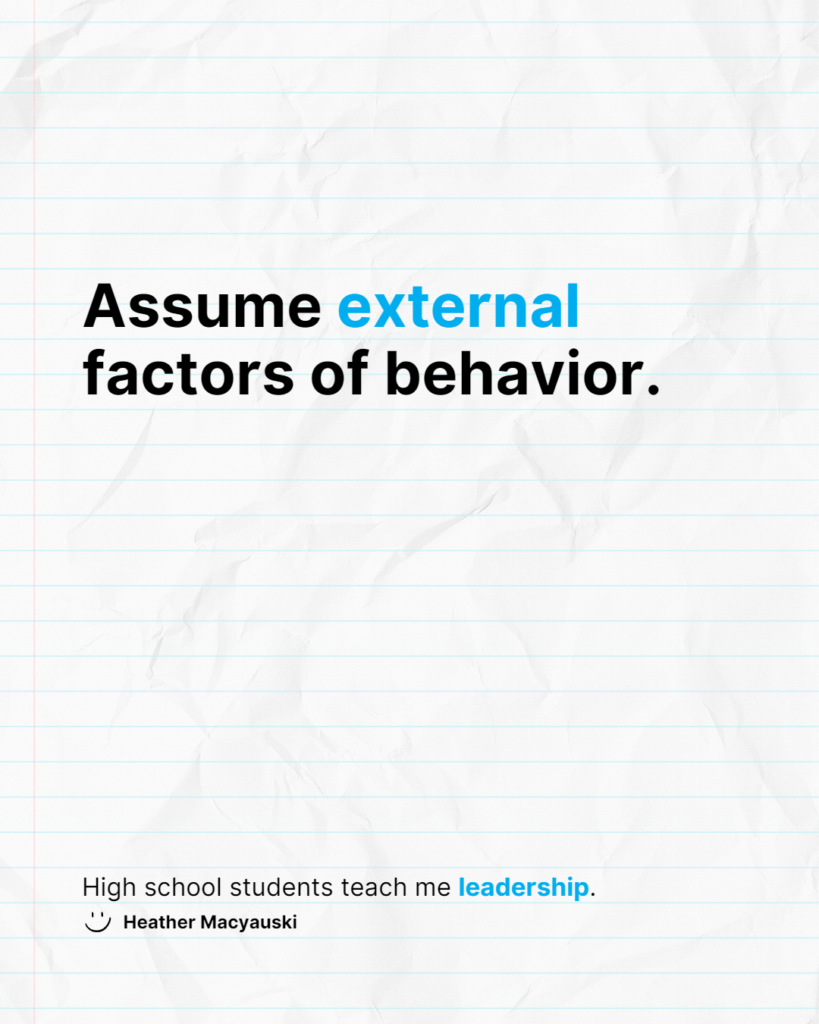When expectations aren’t followed, it’s natural to opt for immediate correction. Instead of pointedly reminding a student they can’t sleep in class, I’m learning to pause and ask if they’re okay.
I get all sorts of answers. Sometimes, the behavior is justified by an illness and the student needs hospital treatment (true story). Other times, they simply stayed up too late.
The people around us have real lives with real problems. I’m trying to remember daily that behind questionable behavior is quite possibly some big problems—problems that would just be exacerbated if I lost my patience and didn’t lead with care.
In starting with a question that expresses care and concern, the tone of the correction shifts. The student knows they’re in the wrong—my classroom expectations are clear. They have an opportunity to communicate external factors.
I still make the correction. This isn’t about allowing midday naptime for 18-year-olds. But when I remind them that sleeping isn’t okay in class, I know how to pad my correction. I can suggest they get more sleep, or call a parent to let them know something more serious is happening. The student is also more likely to regroup and get back to the expectations, as they can do them out of respect for the workspace.
Students taught me that I should lead with care, knowing that questionable behavior may be caused by big problems.
Regardless of the behavior reasons, the individual knows I care about them, and can make an effort to reciprocate by upholding expectations.

